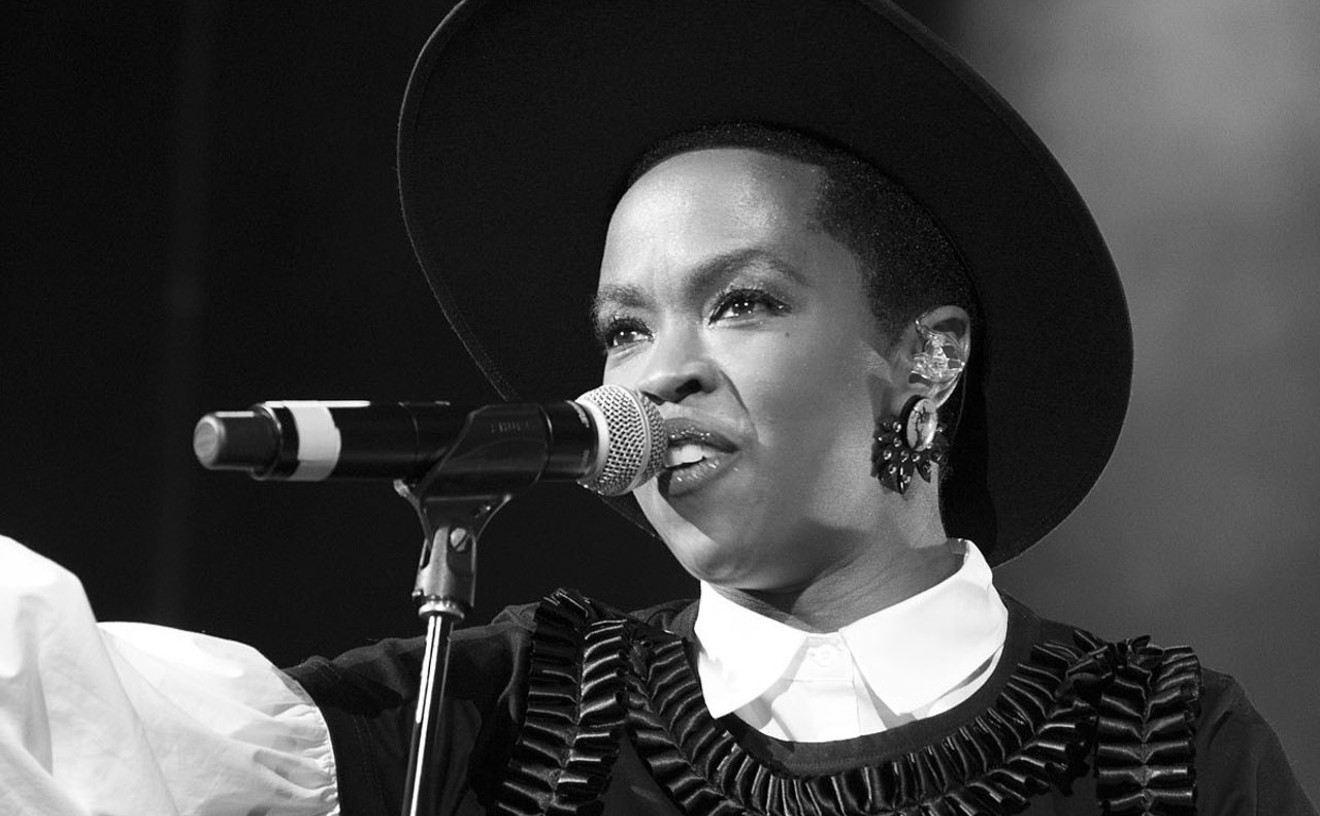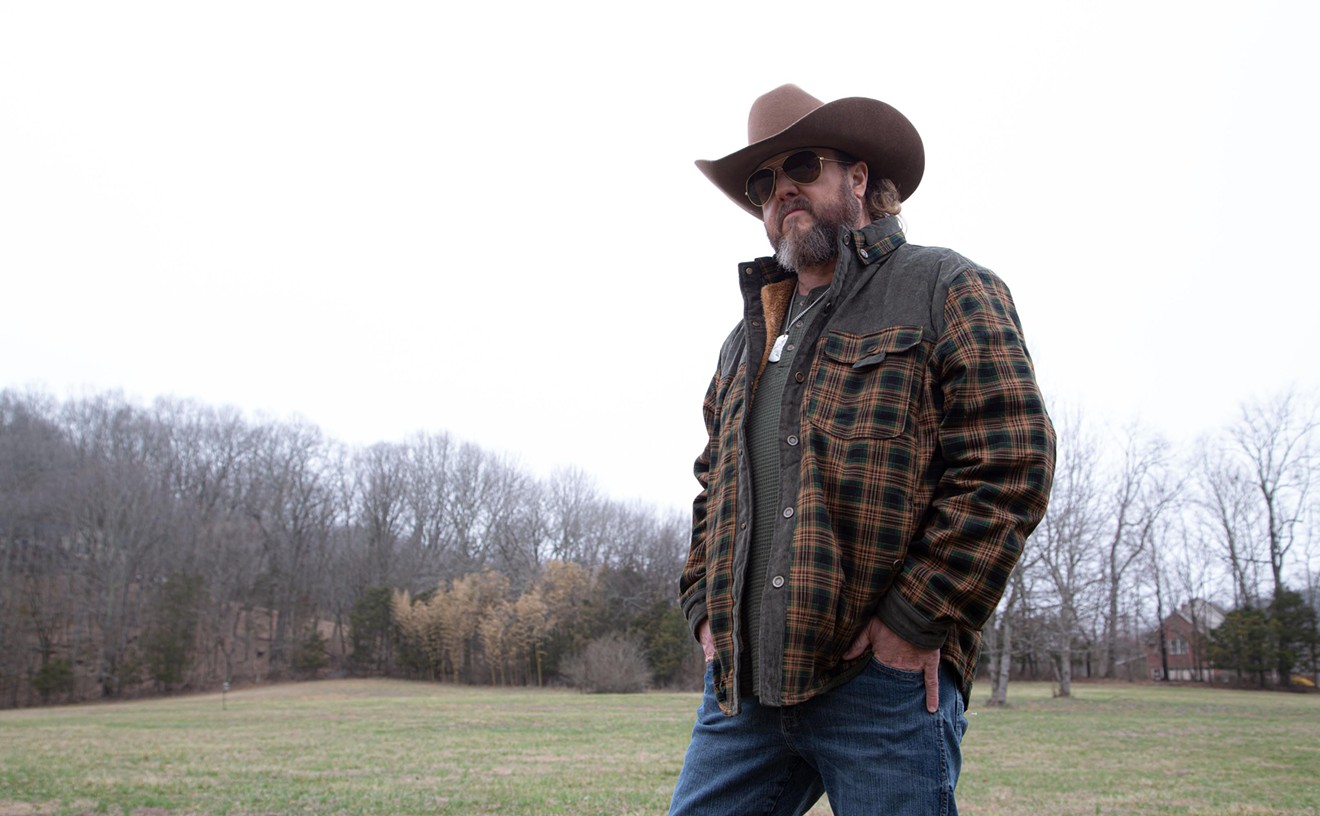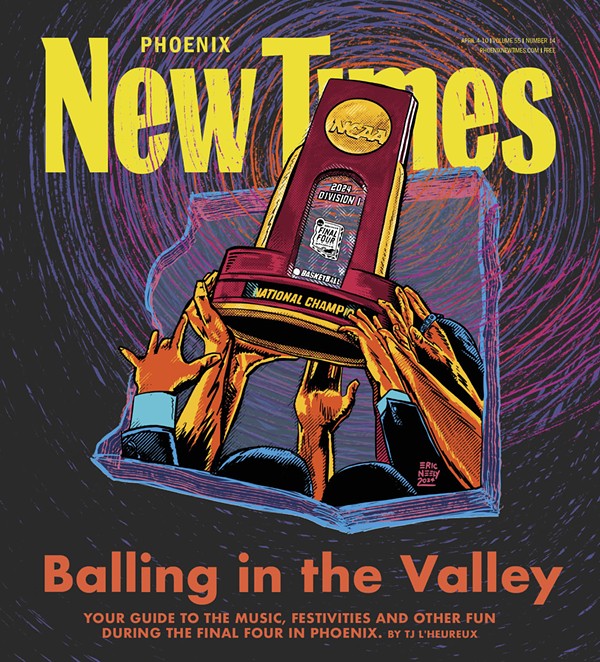For as long as metal has been around, people have associated the sound with "The Devil" and "Satanism." Locally, it's slim pickins' finding an actual Satanic metal band to chat with. I'm not talking "dressed in black" here; I'm talking blood-guzzling, church-burning, javelina-murdering dudes donning corpse paint with greasy long black hair.
I know they are out there, though, most notably in the depths of Norway, Sweden, England, and parts of Eastern Europe. Varg and Burzum, Venom and Celtic Frost: The influence of these bands is enduring. While I haven't been able to get any of those guys on the phone, I did recently chat with Cradle of Filth frontman Dani Filth. If you Google "Satanic bands," you'll find Cradle of Filth on many lists.
But the truth regarding C.O.F. is far more complicated. Cradle of Filth has been honest about religious themes, plus they look like something straight out of the depths of hell, and they utilize religious metaphors, evil, and mythological themes. Yes, for a time Filth dabbled in Luciferianism, a belief system that reveres Lucifer not as the Devil, but as a rescuer or guiding spirit or even the true God. Currently (and for quite a while), Filth has denied Satanic slurs.
Filth is one of the sweetest interviewees I've ever talked with (maybe it's that elegant British accent). I chatted with him about what fascinates him about religion, why Satanic bands keep so quiet, and how the media portray them. Cradle of Filth's most recent album, The Manticore and Other Horrors, was released in October
Up on the Sun: You've studied a range of different religions in the past, including Luciferianism. What' are your core beliefs now when I comes to religion?
Dani Filth: I grew up in a very small English village. It's always been associated with the supernatural, especially witchcraft. I don't know if you are familiar with that film, Witchfinder General, but the character was [based on] a real character. The house I used to live in, that character used to stay in. Everything was very much steeped in the supernatural where I grew up. At school, a couple girls were really into Wiccan and paganism. It grew from there, hand-in-hand, along with '80s horror movies.
Growing up in that area really shaped me and the band. In all my years, I was once a big part of some occult groups. Now I sort of cherry pick from bits of everything. I mean, my mums had a house in India for a long time, and I've embraced parts of that culture. I guess you can look at it like a Trivial Pursuit piece. I like the black piece, and a Satanic piece, but other colors as well.
No matter what religious system, they are all the same. You always have at the top a male god that rules over everything. And his counterpart always seems to be a female version. That's what I'm attracted to. Like Lilith, Artemis, Diana . . . all these female figure heads whom, without which, the male counterpart wouldn't exist. They kind of redeem each other. I find that fascinating. But it's like nature, isn't it? Nature is callous when she has to be. Humans are going to suffer, because nature's going to take back and depopulate the planet however she sees fit, whether its tsunamis and earthquakes. That's what's so interesting in that respect, is that we still have these belief systems.
You know, the first time I heard of Lilith was in that HBO series True Blood. She was a big part of that show and it very much intrigued me.
She's Jewish; she comes from Jewish mythology. Well, she was born before Eve in Jewish mythology. She was chased out of the Garden because symbolically she wanted sex on top and power over man. So they chased her out, and created a more benevolent yielding figure in Eve. And then they were happy with that. Lilith was scorned and consorted with demons apparently, and created lots of little Liliths, which apparently were the origins of the vampire species. That's not from HBO; that's from religion. [Laughs] Even though you guys have been around for more than two decades, I've heard Cradle of Filth categorized a lot. So how do you feel when you get pigeon-holed in a certain genre, like Satanic?
Well, we never said we were a black metal band, and when we were no one was weren't interested. Categorization is bullshit.
What is the most extreme metal/Satanist band you've ever met? For, me bands like Mayhem and Burzum come to mind.
It all started in England when Venom, but then in Norway, all the church burnings and murders happened. When I went to Norway years back I met the bands that are supposed to be, what people think of, most extreme. Dogseed, Immortal, Gorgoroth . . . and they were just really, really lovely. Well maybe one really, to be fair. But at the heart they are just catering to the music they play and enjoying themselves. That seems to surprise a lot of people.
But yeah, there have been weird times with a few people. But I think the whole church burning/murder thing happens because of magazines like Kerrang! making such a big deal out of them. You know, they were all really young, like 17 or 18 at the time. "Oh, the world news is telling us we're the devil's spawn. That we're this strange cult." And they suddenly believed the hype, and they just took it too far. You know, I think the music industry adds to that as well; they wanted a bit of danger you know? Heavy metal has always been dangerous. Looking at bands like KISS and W.A.S.P. and Judas Priest, [they were] branded as things that they weren't. Then the magazines pushed it for publicity because they wanted their publications to sell, and these kids believed it.











